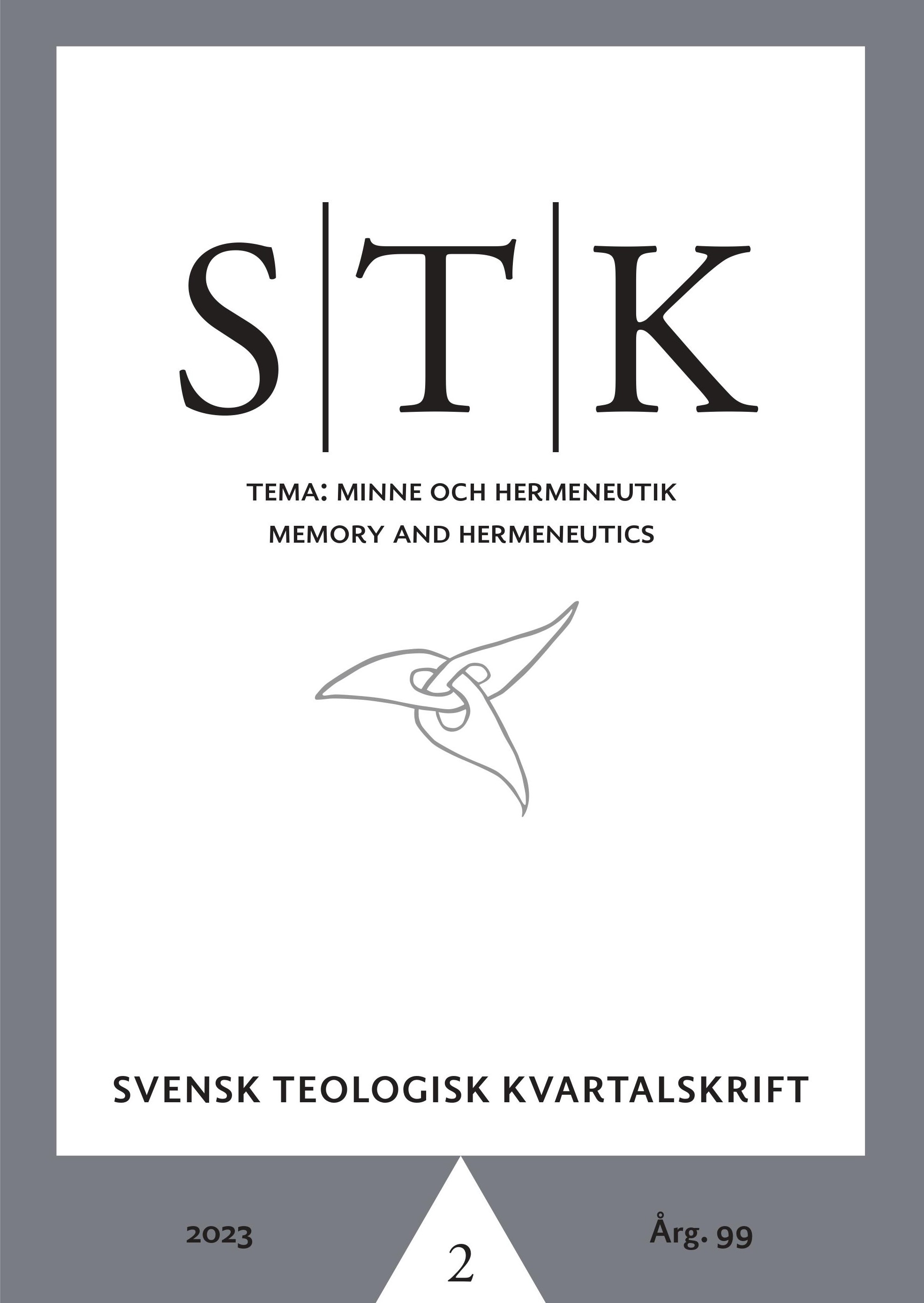Memory and Hermeneutics – Concluding Reflections
DOI:
https://doi.org/10.51619/stk.v99i2.25196Abstract
This response presents the reason for studying memory and hermeneutics in depth and employs hermeneutical categories of memory to discuss the contributions of four prominent New Testament scholars. The motive for selecting memory and hermeneutics as the topic of more profound study has to do both with the different phases of my academic life and environment, moving from historical research as an activity of distanced reconstruction of the past to approaching it as a more subtle negotiation with the past in the present, as well as with an increasing awareness of the inherently hermeneutical dimension of memory. The three categories of memory that are necessary in order for memory to be memory are referentiality, narrativity, and temporality. Memory without referentiality turns into pure imagination; memory without narrativity turns into a static archive; memory without temporality turns into achronic fantasy. From this hermeneutical perspective, I comment on the four articles proposing ways to use theories of memory in the study of the New Testament Gospels and indicate new avenues emerging from working with Paul's letter to the Romans.
Downloads
Publicerad
Nummer
Sektion
Licens
Copyright (c) 2023 Samuel Byrskog

Detta verk är licensierat under en Creative Commons Erkännande-Ickekommersiell-IngaBearbetningar 4.0 Internationell-licens.


